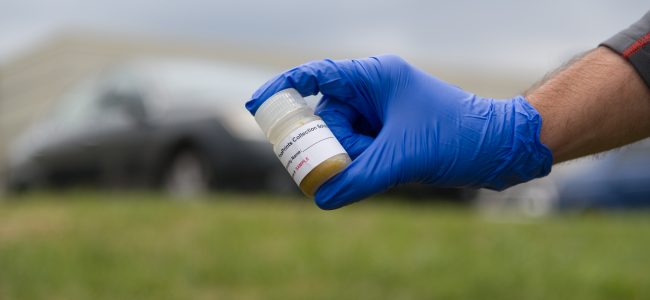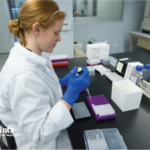
Poop rules...no like actual rules.
Property managers: Do you know what your results mean? Results are obviously very important — they’re how we get matches — but what about the other outcomes? We’re defining what separates each of these result categories and how to tackle them to ultimately get more matches!
The first result type — which hopefully we all know well — is a Match. Quick recap! A Match means that the DNA in the waste sample matches the DNA of a dog you have registered on your property. If you need help navigating to find Matches and see the info with them, let us know. We offer weekly trainings on the DNA World Pet Registry!
Another result option is a No Match. Like Matches, these do have a solid, complete genetic profile but that DNA does not match up to any of the dogs actually registered on your community. What this usually boils down to is an unauthorized/hidden pet or a guest pet. While this sounds like the end of the road, it’s not. Behind the curtain of our program, we have built in a few checks-and-balances to help you combat these.
First and foremost – check the collection notes that are tied to each sample. Every waste sample collection kit has all the necessary tools to scoop that poop but, it also has a card with an area to detail date, time, and location of the collection. Secondly, in our database, we have stored the DNA of these No Matches and can see how many waste samples belong to one pet. Last but not least, our lab reruns No Matches against the database twice a month, in case you’ve gotten any dogs registered that were once unaccounted for.
Put all of these little bits together in a scenario: Say we have two or three No Matches and from the collection notes, you can see that they were all found around Building 5. On our lab’s end, we can see that all the DNA in these No-Match samples belong to the same dog. Sowe know, only 1 dog is responsible, we just don’t know which dog. Intuitively, your community can do a building check and get that hidden dog registered so those No Matches flip to Matches. Then, you get to fine that resident and recoup your costs!
While No Matches can be frustrating, don’t get discouraged! These ALWAYS have the opportunity to flip so you can recoup your costs. Reach out to us and we can provide you with a No Match report to help you nail down who the culprit may be.
Now, on to Fails. These are almost entirely based off of collection method. There are a few things that when collecting can result in a Fail:
- Too little or too much of a sample. Yes, you can really give us too much poo. You only want to fill the bottle up about half-way or a nickel sized slice. Each of our collection bottles are filled with a small amount of our stabilizing solution. If you get too much poo in the bottle, there’s not enough solution to counteract that pesky bacteria on the sample. Too much bacteria means it will degrade the DNA in transit, and we’ll get a failed sample. So, be sure you only send us a bit!
- The sample was cross contaminated. This means the lab has detected two different canine DNA in the sample. These samples automatically fail, as we do not want to get in the business of determining which resident’s dog had more DNA and who pays what. Cross contamination is rare, but technically it could happen!
- The integrity of the sample has been damaged which in turn damages the DNA. This can happen if a sample has been heavily disturbed by outside forces (foot traffic) or if was first stored in plastic before sampling. If a sample is in a plastic bag (like a poo bag), you’re increasing your chances of getting a fail. Not only will bacteria grow inside the plastic and destroy the DNA, but once it’s been highly disturbed (i.e. picking it up into the bag and probably smooshing it a little) chances are that many of the epithelial cells on the outside of the sample will be damaged or gone entirely.
Did you ever know there were so many rules about poo? Knowing the difference between your results is very important in the management of our program. If you’ve read this and you’re even more confused, reach out to us! We are more than happy to help you navigate our system or provide additional material on collection.



